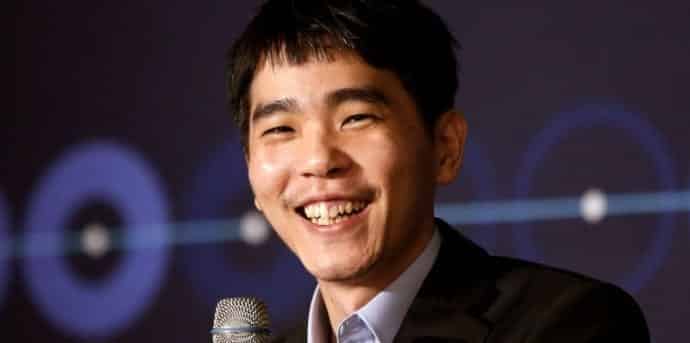Go Champion Lee Sedol Beats Google’s DeepMind AI ‘AphaGo For The First Time
On Sunday, Lee Sedol faced AlphaGo, the program developed by Google’s DeepMind unit, for the fourth time after losing the first three games. Amidst minimal expectations, Lee Sedol finally went to triumph against AlphaGo in the fourth game of a five-game match in Seoul.
Lee Sedol, the 33-year-old South Korean, who is one of the world’s top players of the ancient Chinese board game Go and a holder of 18 international titles, after his loss to the system on Saturday had apologized for his failure to beat the machine. However, on Sunday, he was far more positive after his win, noting that “I’ve never been congratulated so much just because I won one game!”
Thanking fans for their support, a jubilant Lee told reporters after the match, “This win is invaluable and I would not trade it for anything else in the world.”
Tweets from DeepMind founder Demis Hassabis mentioned that this time AlphaGo really did make mistakes. The AI “thought it was doing well, but got confused on move 87,” Hassabis said, later clarifying that it made a mistake on move 79 but only realized its error by 87. Based on its evaluation of how the game is progressing. AlphaGo adjusts its playing style.
Hassabis told reporters the loss was a valuable learning tool and would help identify weaknesses in the program that his team needed to address.
“It’s a real testament to Mr Lee’s incredible fighting spirit and he was able to play so brilliantly today after three defeats,” Hassabis said.
The machine gave up after five hours, leaving Sedol the victor. As the pair have played one another, it appears that they have been learning and understanding each other better with each match, according to South Korean commentator Song Taegon.
“It seems Lee Sedol can now read AlphaGo better and has a better understanding of how AlphaGo moves. For the 5th match, it will be a far closer battle than before since we know each better.”
Before the five-game series, Lee exuded confidence. “I don’t think it will be a very close match,” he said. “I believe it will be 5–0, or maybe 4–1. So the critical point for me will be to not lose one match.”
Despite the win, the machine has won eight out of the nine games that it’s played: while its winning streak is now broken, it’s an amazing triumph for AI: Go is an incredibly difficult game to play, with a huge number of possible moves to compute.
Go, most popular in countries such as China, South Korea and Japan, involves two contestants moving black and white stones on a square grid, with the aim of seizing the most territory.
While the loss for the machine shows that there’s still some gleam of hope for humanity, it will be interesting to see how the fifth and final game ends up. The fifth and final match is scheduled for Tuesday, 15th of March.
Lee was competing for a $1 million prize put up by Google, but DeepMind’s victory means the sum will be donated to charity.

